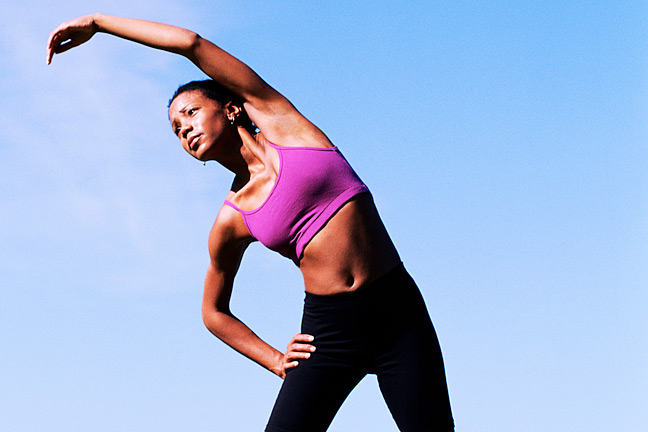How Much Can You Really Increase Your Metabolism?
Drink green tea. Build more muscle. Eat chili peppers. The list of ways you can increase your metabolic rate are endless.
But when it comes to reaching your weight-loss goals, how much of a difference do those tactics really make? Not as much as any weight-loss warrior would like, says Tim Church, M.D., M.P.H, Ph.D., professor of preventative medicine at Pennington Biomedical Research Center at Louisiana State University.
That's because your metabolism largely comes down to two factors: your genetics and your size. If your mom and dad had slow metabolisms, you probably will, too. There's not much you can do to change that, says Church.
RELATED: 8 Surprising Ways You're Slowing Your Metabolism
Meanwhile, the larger you are, the faster your metabolism actually is. "Someone who is morbidly obese burns an enormous amount of calories every day," says Church. On the flip side, the smaller you are, the slower your metabolism is. After all, it takes less fuel (i.e., calories) to run a tiny person than it does to run a large person. It's a cruel twist for any woman trying to lose weight and get in shape.
Still, while you can't exchange your metabolism for that of a much luckier woman, a few calories here and a few calories there do add up. For instance, research shows that drinking two to four cups of green tea per day may raise your metabolism by 50 calories per day. That's a lot of tea and not a ton of calories, but, hey, that equals a good five pounds lost in a single year.
RELATED: 5 Weight-Lifting Moves That'll Help You Drop a Size (Or More)
Meanwhile, in study published in The American Journal of Clinical, people who consumed capsinoids (compounds in chili peppers) every day for 12 weeks didn't enjoy a significant increase in resting metabolism, but their rates of fat oxidation and their levels of belly fat did decrease. And according to research from the University of Utah, for every three percent of your body weight in water you lose (for example, if you weigh 140 pounds and lose 4.2 pounds of water weight), your resting metabolism drops by two percent. Again, not huge, but it makes a difference over the long term.
What's more, exercise, or more specifically, strength training, can help support a healthy metabolism. After all, pound per pound, muscle burns more calories than fat. However, the difference might not be as big as you think: four calories, to be precise. A pound of fat burns two calories per day, and a pound of fat burns six. To put that into perspective, losing two pounds of fat and replacing it with two pounds of muscle will increase your resting metabolic rate by only eight calories per day.
RELATED: 11 Easy Things You Can Do TODAY to Jumpstart Your Weight-Loss Journey
However, the biggest calorie-burning benefit of exercise isn't muscle—it's getting moving. "The key to burning more calories is always going to be more active," says Church. "In the end, weight loss comes down to pure hard work. People don't like to hear it, but it's true."
-
Go for black to boost metabolism!
-
Top 10 weight loss tips of 2012
-
Theres Now an Ice Cream Cleanse—But Is It Really Healthy?
Have you ever wished you could eat ice cream for every meal? Well, Kip
-
Lose weight and get toned with my top 5 exercise tips of 2015!
-
4 Surprising Things That Can Increase Your Appetite
Even if youre generally in tune with your eating M.O., there are a few
-
Quick-fix fitness fads: solution or problem?
- DON'T MISS
- 36 Amazing Benefits Of Tomatoes (Tamatar) For Skin, Hair, And Health
- Clean out your fridge
- The Type of Workout That Tricks You Into Eating MORE
- Could fear of failure prevent you from losing weight?
- Scientifically Proven Ways To Keep Weight Off For Good
- Study: Sugars Found In Tequila Could Help You Lose Weight
- Bite size may determine your size!
- Whats More Important for Weight Loss: Low-Fat Foods or Low-Calorie Ones?
- Why lunching light is so good for you
- Stop the junk food cravings!




